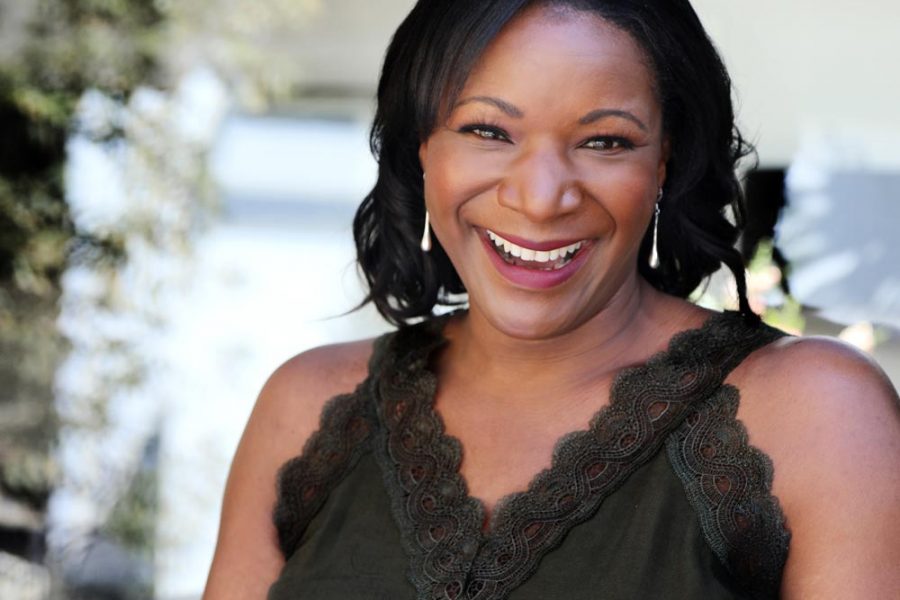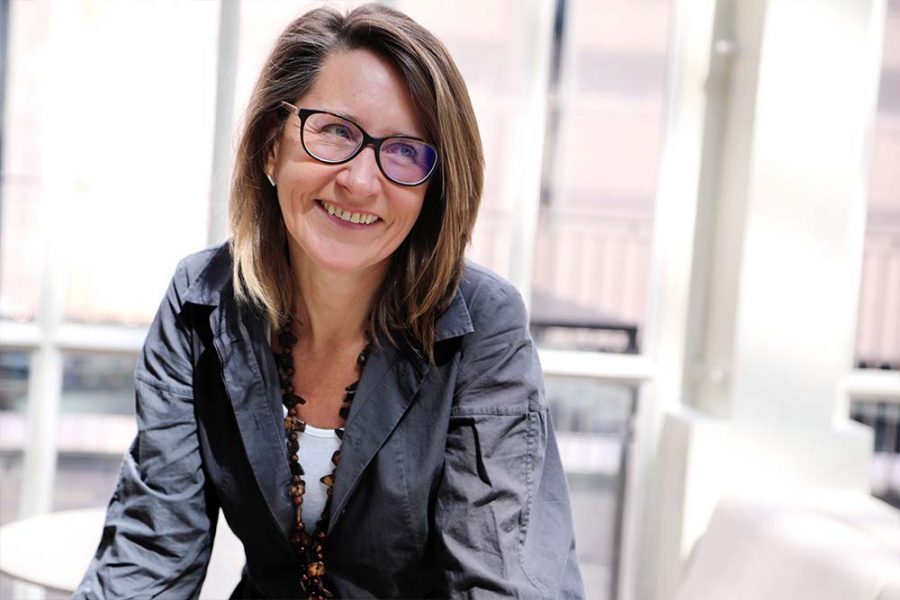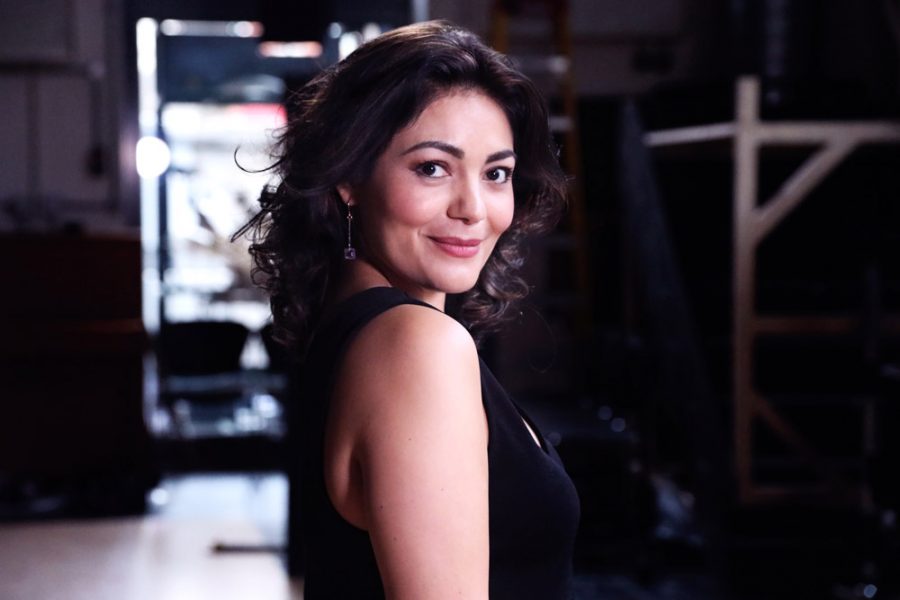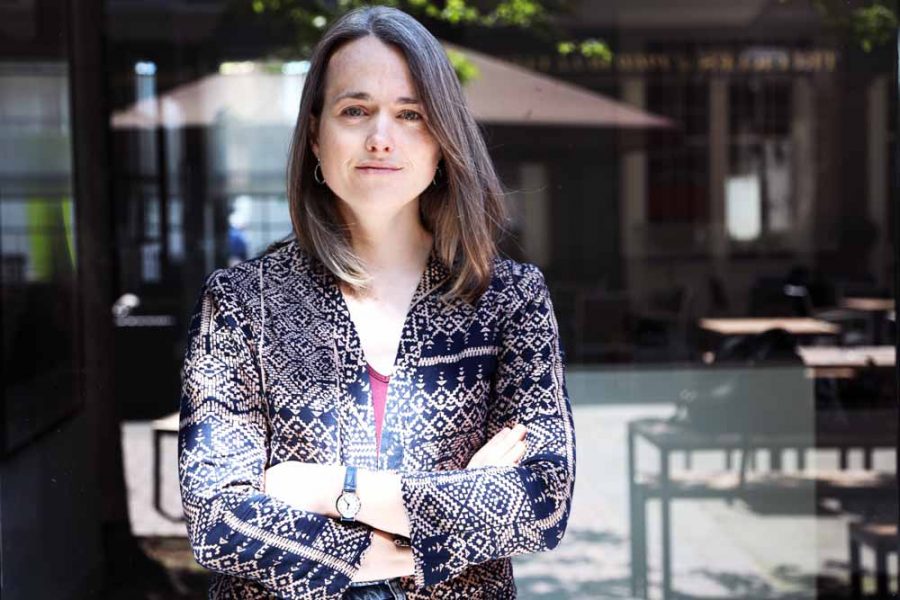Pop-Up Opera with Clementine Lovell

April 2017
Words by
Emer Nestor
Photos by
Frances Marshall
Clementine Lovell is the founder and director of one of the UK’s most ground-breaking and innovative touring companies, Pop-Up Opera. Here, the inspirational soprano reveals how she made her vision a successful reality.
The production grows and evolves as it pops up in different places."

Tell us all about Pop-up Opera and the people that you work with.
When I began training as an opera singer, I had mixed reactions from my friends. Opera wasn’t really their thing…one even claimed to be “allergic” to it. That stayed with me, and I wanted to prove them wrong, to show them that opera could be magical, hilarious, devastating or moving. I founded Pop-up Opera in 2011, on my return from living in Italy. Opera is so much a part of Italian culture, so broadly appreciated, and is performed everywhere, not just in the big houses. I grew up in a small village in the UK, miles from an opera house. We never went to see it, it wasn’t an option. My uncle has a barn where he hosts folk and blues events and we put on an opera there for a largely non-opera going audience. They loved it. It made me think about how the setting can have a bearing on people’s enjoyment, or their willingness to give it a go.
The venue also has a bearing on the performance itself, and each new space presents a challenge. The production grows and evolves as it pops up in different places. We stage it in the rehearsal room and then adapt it to embrace each venue, so every night is different. The performance spaces vary wildly in size, shape, acoustic, and feeling. We get in to the space on the day and start working out the entrances, exits, how to involve the audience…. The performers have to think on their feet, and be willing to allow some freedom and spontaneity. I think this keeps it fresh and creates a very special atmosphere.

Our projected captions have become part of our signature style. We believe that you can still make opera accessible when performed in the original language. The music, the intentions of the actors, the interaction between the characters, and the power of the drama get the story across. The captions are there to compliment, not to detract. They keep the audience broadly abreast of the story but don’t demand their attention all the time. With a comedy, the captions can add another layer of humour, and we can play around with the modern context. In a drama, we keep the translation more ‘straight’, but still with the same approach of captions rather than a full-text translated into continuous surtitles.
I run the company with my business partner and co-producer, Fiona Johnston. My partnership with her, and the work we have put in to building the company forms its foundation. She is an amazing person who puts everything into what she does and is brilliant at it. Last year we took on board an administrator, Emily Salmon, who has become a valuable asset to the company and a true part of the Pop-up team. We are extremely lucky to have a very talented and dedicated musical director, Berrak Dyer, who has very high musical standards and is a beloved part of the team. Harry Percival is our captions writer and his humour and skill forms an important part of what makes our productions appeal to first-time opera goers. We have worked with the excellent stage director James Hurley several times now, and his attention to detail and intelligent re-workings of traditional operas make them enjoyable and compelling for a modern audience. We are very excited to begin working with stage director Max Hoehn whose staging has been described as “brilliantly alive”. We work on rotation with a brilliant team of captions operators and stage managers with huge enthusiasm for the project, and a willingness to get stuck in and deal with any challenges the venues might present. Last year we worked with 33 singers over the course of four productions. Many of the singers who have worked with us remain in touch, and are hugely supportive of us and of the company. They become like part of the family. It means a huge amount to us. We also work with many many different people who run our venues. Our relationship with them is extremely important and it’s part of what makes our job fascinating and rewarding.
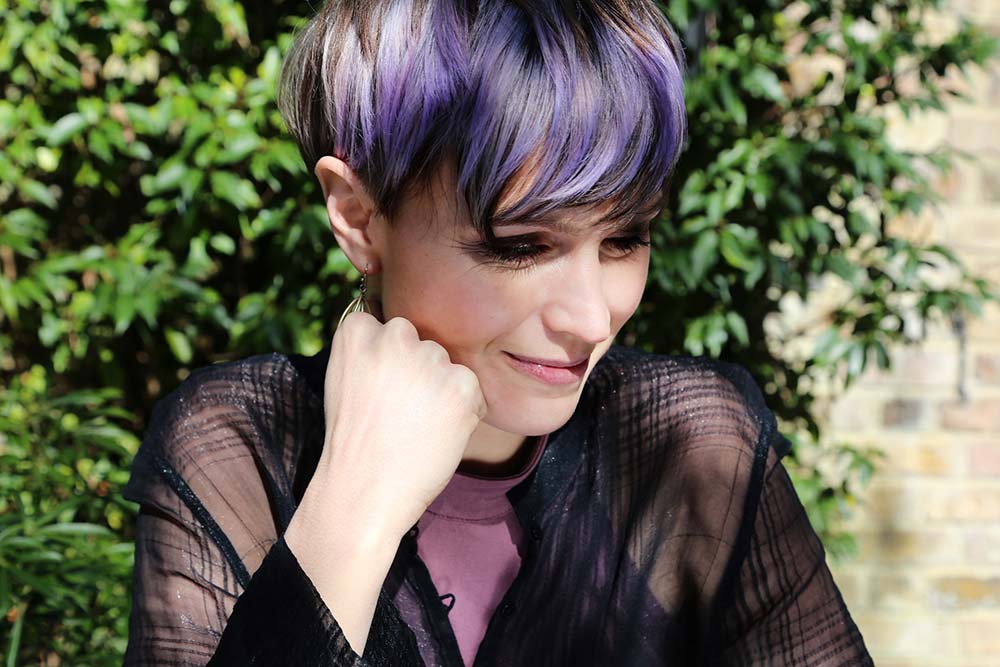

How did you first set about making those initial ideas to form the company a reality?
I made the decision to try and build a company that could stand on its own two feet financially, rather than replying on funding. Initially, I started it as a profit share, and convinced 12 venues to work with us for the initial season. The production was a success and the word began to spread. I sat down and made a business plan and worked out what we would need to achieve to stay afloat and meet our running costs, and moved away from profit share to offering fees to our singers and directors. My co-producer Fiona Johnston came on board in year two and we formed a very strong partnership. We put a lot of work into approaching venues and building a relationship with them, and with our audiences. Together, we have expanded the company and have taken on challenges and opportunities as they arise.
Do you find it difficult to attract professional singers to take part in your shows?
We audition around 400 professional singers per year for our productions. We offer a platform for talented singers wanting to really explore and consolidate a role in the original language over a long run of performances. Even when the production is double cast, a singer would expect to have 15-20 performances over a couple of months. It’s important to us to create a fun and supportive environment to work in, and although touring can be hard work and adapting the production constantly to different spaces can be challenging, it’s also rewarding and enjoyable.
Now in its sixth year, did you ever think: “this isn’t working”?
Yes! There have been many challenges and moments of despair. Initially, Fiona and I were juggling producing with other jobs until we could pay ourselves. The costs of running a company are enormous and it’s both terrifying and liberating to be financially self-reliant. We are covering costs but it’s a struggle and a frequent cause of anxiety. We have learnt business and management skills on the job and have dealt with many challenging situations. The company is so full of potential, and is growing in size and strength, but it’s still fragile. We have a lot of people reliant on us and there are so many variables. It can be very stressful. If we weren’t passionate about it, it just wouldn’t happen.
It's important to us to create a fun and supportive environment to work in, and although touring can be hard work and adapting the production constantly to different spaces can be challenging, it's also rewarding and enjoyable."


Quirky venues are part and parcel of your unique brand of opera, what makes the perfect location for one of your company’s performances?
We take into account the size and shape of the venue, sightline, acoustic, interesting characteristics, history, audience base and location when choosing to work with venues. We like to perform at a variety of different spaces in different areas and find this pulls in a wide demographic.
One of our first venues was a boat made of scrap metal in Shoreham. The stairs were made out of an old car and the room we performed in had previously been part of a bus. We once performed 100ft underground in Clearwell Caves. To make some of the entrances, the singers had to grope their way down a very dark tunnel with only headlamps to light the way, and one of them was terrified of bats! Another venue was the ruins of Raglan castle, where our backstage area was a crumbling tower. We’ve done shows in the Brunel Museum Thames Tunnel Shaft several times. It used to be more challenging to get in there—you had to crawl through a tiny entranceway and then down a scaffold stairway. It was always a nightmare getting props down there. We love going to the Garlic Farm on the Isle of Wight, the audience always goes crazy for it. My favourite venue will always be our original—the cider barn in Herefordshire. You can have a glass of cider from the Ross-on-Wye Cider & Perry Co, and the atmosphere is always fantastic.
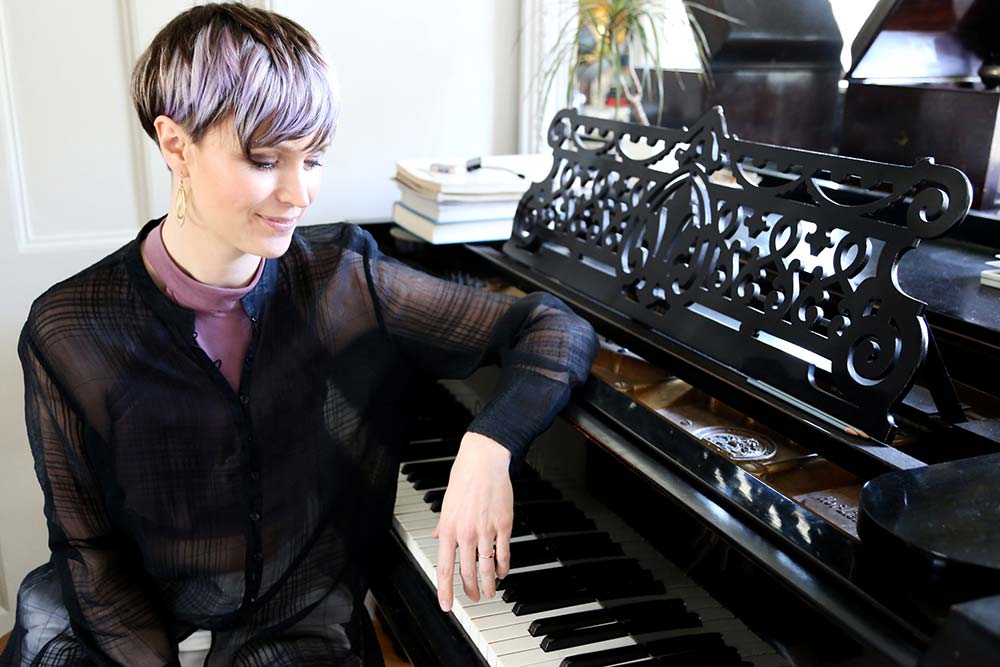


Having limited finances and musicians must impact your choice of repertoire—how do you juggle this with providing a production of high quality?
We consider carefully what productions will work for us, and take into account many factors. We have to balance artistic and creative drive with financial and logistical constraints: we are limited by budget and by the number of people we can fit into our 9-seater tour bus. We also have to think about what will work in our venues and with piano reduction instead of orchestra. We consider the suitability of the roles for singers in the early stages of their careers, and we must be excited by the music. The quality of the performance is paramount and Berrak does intensive work with the singers rehearsing the music before we go into staging. We think about how we can adapt the story in our Pop-up style to make it more relevant to a modern audience, and how it will work in the different spaces. We try to choose venues based on the production and what will enhance this: for example, a spooky tunnel shaft or urban basement is a perfect backdrop to the gritty violence and eerie beauty of the Capulets and the Montagues, whilst the Barber of Seville works in a room above a pub.
Top 5 moments in the life of Pop-up Opera so far?
1 Seeing my idea take wings when our very first production, Don Pasquale, came alive with the special talent and humour of our first stage director, Darren Royston, who believed in my vision for the company.
2 Our reviews for L’elisir d’amore and Matthew Parris writing about us in The Times.
3 The moment when Fiona and I could give up our other work to focus on the company fulltime.
4 The intense atmosphere of the dress rehearsal of I Capuleti, and the thrill of doing a tragedy for the first time.
5 Hearing the full orchestra play the first few notes of Figaro as the curtain went up on the amazing set of our co-production with Kilden concert house in Norway.
Knowing what you now know about the music business, what advice would you give to your teenage self?
Try not to compare yourself to others or care what they think. Believe in what makes you different as strengths. Allow some doors to close as others open.
When not on stage, what do you like to do?
I’m not on stage much at the moment, my last role (Giulietta) was last year when my son (now 18 months) was 3 months old. Running the company and looking after him takes up most of my time. My favourite things to do in the world are swimming in the sea, singing folk music in the pub in Ireland, enjoying delicious food and drink, spending time with the people I love in the places I love, and exploring life and this world at any opportunity.
Ultimately, what’s the vision Clementine?
It’s a very exciting time for the company. As well as our core productions touring 90 shows a year, we have also begun to collaborate with larger organisations, such as the amazing Kilden concert house in Norway where we upscaled but still stayed true to our ethos and style. We hope to take on more projects and partnerships like this, as well as continuing to bring our productions to intimate and usual venues around the UK. Ultimately though, the sky’s the limit. Anything is possible if you believe in it enough and are prepared to work hard to make it happen.
It's a very exciting time for the company. As well as our core productions touring 90 shows a year, we have also begun to collaborate with larger organisations, such as the amazing Kilden concert house in Norway..."

To find out more about the amazing world of Pop-Up Opera see: www.popupopera.co.uk
All content and imagery displayed within this article is subject to copyright.
Share this article


